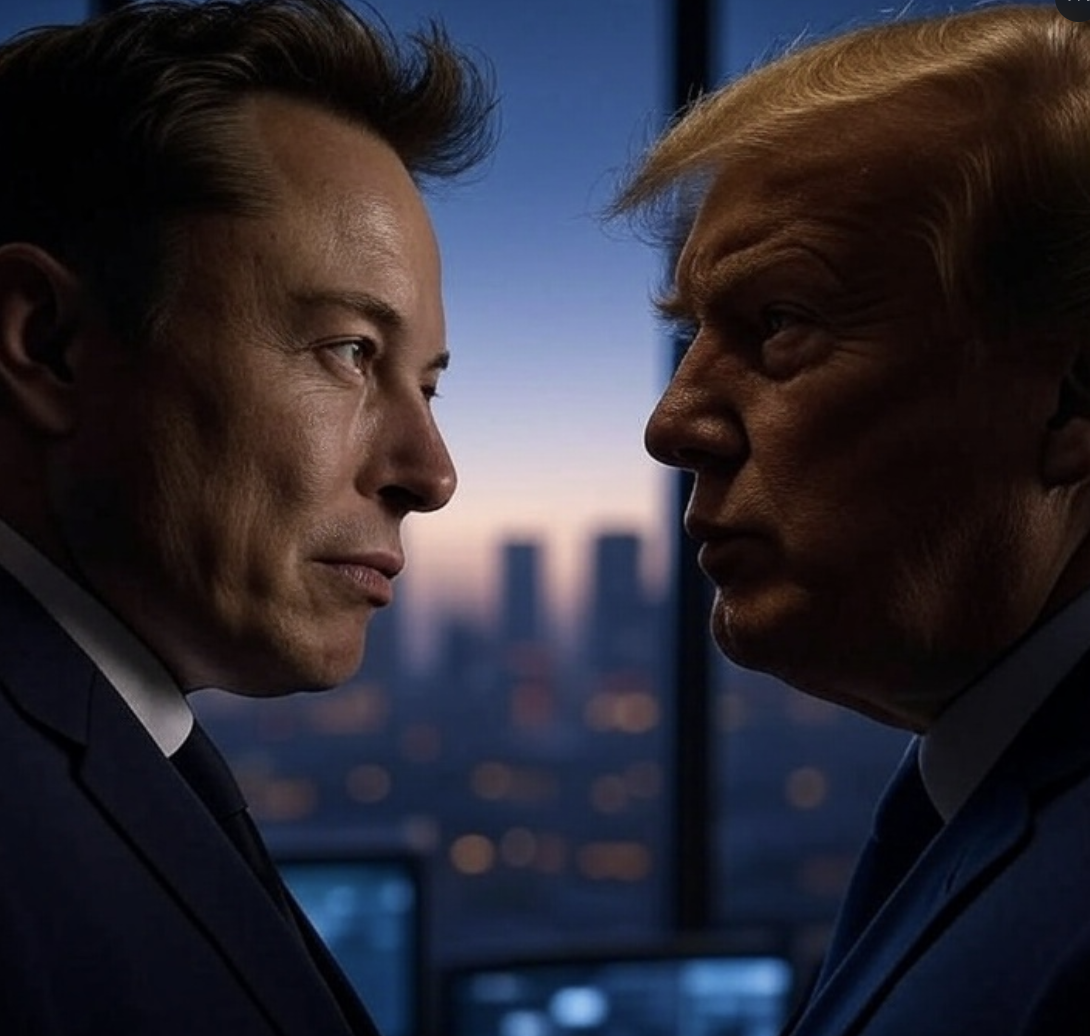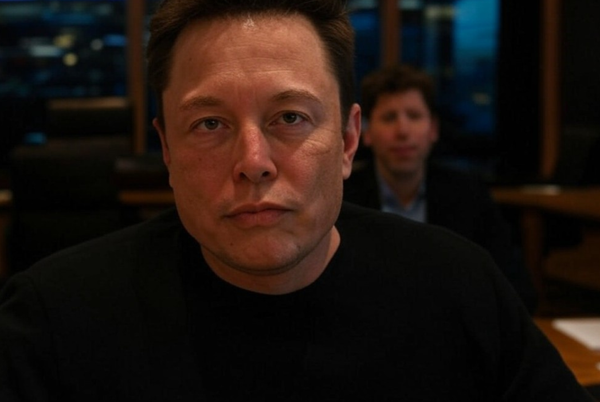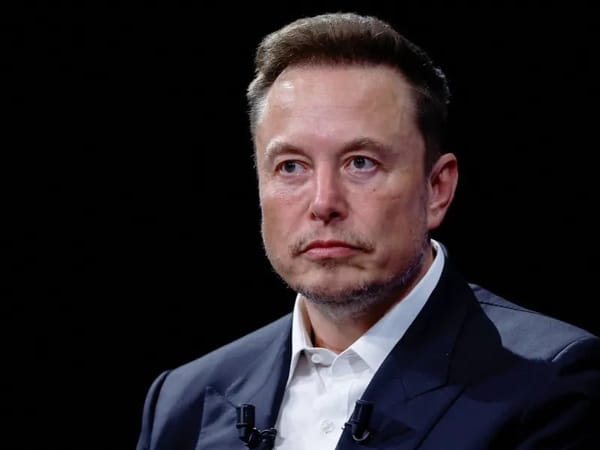In a dramatic turn of events that has captivated the political and business worlds, Elon Musk, the billionaire entrepreneur behind Tesla and SpaceX, has publicly called for the impeachment of U.S. President Donald Trump. The conflict, which erupted on June 5, 2025, marks a stunning breakdown in the once-close relationship between two of the most influential figures in American politics and industry. Fueled by a series of inflammatory social media posts, allegations involving the Jeffrey Epstein files, and a bitter dispute over government spending, this feud has far-reaching implications for the political landscape, the economy, and the public perception of both men. This article delves into the origins of the conflict, the events leading up to Musk’s provocative statement, the fallout, and the broader context of their deteriorating relationship.
The Tweet That Ignited the Firestorm
On June 5, 2025, at 20:11 UTC, Elon Musk posted a single word on the social media platform X: "Yes." While the message itself was brief, its implications were monumental. Musk’s post was a direct response to a suggestion that President Donald Trump should be impeached and replaced by Vice President JD Vance. The original post Musk responded to framed the situation as a showdown between Musk and Trump, with the author betting on Musk to emerge victorious and calling for Trump’s removal from office.
Musk’s endorsement of this idea sent shockwaves through the political sphere. Impeachment, a process reserved for addressing serious misconduct by a president, such as treason, bribery, or other high crimes and misdemeanors, is a rare and highly contentious action in American politics. For Musk, a private citizen and business mogul, to publicly advocate for such a drastic measure against a sitting president—especially one he had previously supported—marked a significant escalation in an already tense situation.
The Epstein Allegation: A "Big Bomb" Dropped by Musk
The impeachment call was not the first salvo Musk fired in this conflict. Earlier that day, Musk made a bombshell claim on X, alleging that Trump’s name appeared in the files related to Jeffrey Epstein, the late financier and convicted sex offender whose case has implicated numerous high-profile figures. Musk wrote that the "real reason" the Epstein files had not been fully released by the U.S. administration was because they contained incriminating information about Trump. He concluded his post with a pointed message to Trump: "Have a nice day, DJT!"—a reference to Trump’s initials, Donald John Trump.
The Epstein files, maintained by the U.S. Department of Justice, have been a subject of intense public scrutiny since Epstein’s arrest in 2019 and his subsequent death in custody. Epstein was known for his connections to powerful individuals, including politicians, business leaders, and celebrities, many of whom were accused of involvement in his illicit activities. While some documents related to Epstein have been made public over the years, including flight logs showing Trump as a passenger on Epstein’s private jet in the 1990s, no definitive evidence has emerged linking Trump to Epstein’s criminal activities. Musk’s claim, therefore, was a serious accusation—one that lacked publicly available evidence to substantiate it.
According to a report by Euronews on June 5, 2025, Musk did not provide any proof to support his assertion about Trump’s involvement in the Epstein files, nor did he explain how he had gained access to such information. The lack of evidence did not stop the allegation from gaining traction online, where it fueled heated debates and further strained the relationship between Musk and Trump.
A History of Alliance: From Bromance to Betrayal
To understand the significance of this feud, it’s essential to examine the history of the relationship between Musk and Trump. The two men were once allies, with Musk emerging as a prominent supporter of Trump during his 2024 presidential campaign. After Trump’s inauguration in January 2025, Musk was appointed to lead the newly created Department of Government Efficiency (DOGE), a role that positioned him as a close advisor to the president. The department, a joint initiative with Vivek Ramaswamy, was tasked with streamlining government operations and reducing federal spending—a mission that aligned with Musk’s reputation as a disruptor in the business world.
Throughout early 2025, Musk and Trump appeared to share a strong working relationship. On February 11, 2025, Trump hosted Musk and his son, X Æ A-Xii, in the Oval Office, where the president praised the young boy as "a great guy" while Musk discussed his cost-cutting initiatives, according to a report by The Guardian. Public appearances, such as a news conference on May 30, 2025, further reinforced the image of a partnership between the two. During that event, Trump and Musk stood side by side, presenting a united front as they addressed the press.
However, beneath the surface, tensions were brewing. Reports of friction between Musk and other members of Trump’s administration began to emerge as early as February 2025. Musk’s hard-charging style and his influence over Trump reportedly caused unease among some White House staff, who felt overshadowed by the billionaire’s presence. These tensions came to a head in late May 2025, when Musk abruptly left his role at DOGE. Trump later claimed on Truth Social that he had asked Musk to leave, accusing him of "wearing thin" and "going CRAZY!"—a public rebuke that set the stage for their eventual clash.
The Budget Bill: The Spark That Lit the Fuse
The immediate catalyst for the Musk-Trump feud appears to have been a disagreement over a Republican-backed budget bill. According to The Guardian, the bill, which was a priority for Trump, would increase the U.S. national debt by $2.4 trillion over the next decade while extending tax cuts from Trump’s first term. Musk, known for his advocacy of fiscal responsibility, publicly criticized the proposal, calling it a "disgusting abomination" and mocking Trump’s description of it as a "big, beautiful" tax bill.
Trump retaliated by threatening to cancel federal contracts and tax subsidies for Musk’s companies, a move that would have significant financial implications for Tesla and SpaceX. The president argued that such a decision would save "billions" for the American taxpayer, but it was widely seen as a personal attack on Musk. The impact was immediate: Tesla’s stock plummeted, wiping out $152 billion in market value, as reported by The Guardian on June 6, 2025. The financial fallout underscored the high stakes of the conflict, which had now transcended personal animosity to affect the broader economy.
The Fallout: A Social Media War and Public Backlash
Musk’s impeachment call and Epstein allegation unleashed a firestorm of reactions across social media and traditional media outlets. On X, users expressed a wide range of opinions, from support for Musk’s boldness to outrage over his perceived betrayal of Trump. Some criticized Musk’s actions as reckless, arguing that his public attacks on the president were destabilizing for the country. Others accused Musk of hypocrisy, pointing to a 2014 photograph of him with Ghislaine Maxwell, Epstein’s associate and a convicted sex trafficker. Musk had previously claimed that Maxwell "photobombed" the image, a defense he reiterated in response to renewed scrutiny, according to a Snopes fact-check from 2022.
Mainstream media outlets also weighed in on the controversy. The Independent reported on June 6, 2025, that Musk’s call for Trump’s impeachment marked a new, explosive stage in their feud, describing it as a "public fallout" that had escalated rapidly. The Guardian highlighted the economic consequences of the conflict, noting the significant drop in Tesla’s stock price and the broader implications for U.S. politics. Euronews emphasized the lack of evidence behind Musk’s Epstein claim, raising questions about the credibility of his allegations and the motivations behind them.
Trump, for his part, did not remain silent. In a series of posts on Truth Social, he lashed out at Musk, accusing him of disloyalty and mocking his appearance—specifically a recent black eye Musk had sustained. During a meeting with German Chancellor Friedrich Merz in the Oval Office, Trump took a jab at Musk, questioning why he hadn’t covered up the injury, according to The Guardian. The president’s comments were seen as an attempt to belittle Musk, further inflaming the situation.
The Political Implications: Impeachment and Beyond
Musk’s call for Trump’s impeachment raised serious questions about the political ramifications of the feud. Impeachment is a two-step process in the U.S. system: the House of Representatives must first vote to impeach the president, followed by a trial in the Senate, where a two-thirds majority is required to convict and remove the president from office. If successful, the vice president—in this case, JD Vance—would assume the presidency.
While Musk’s statement was symbolic and carried no legal weight, it amplified existing divisions within the Republican Party. Trump, who had returned to the White House in January 2025 after winning the 2024 election, already faced criticism from some conservatives over his budget bill and other policy decisions. Musk’s public break with Trump gave ammunition to the president’s detractors, who saw the billionaire’s influence as a potential catalyst for further unrest within the party.
Democratic leaders, meanwhile, seized the opportunity to comment on the feud. Congresswoman Alexandria Ocasio-Cortez, when asked by Spectrum News 1 NY about the Musk-Trump conflict, refrained from taking a definitive stance but acknowledged the chaos it was causing within the Republican ranks, according to The Independent. The vice president, in a lighter moment, shared a humorous post with podcaster Theo Von, joking about the drama unfolding between Musk and Trump.
The Economic Stakes: Tesla, SpaceX, and Beyond
The Musk-Trump feud had immediate and tangible effects on the business world, particularly for Musk’s companies. Tesla, already a volatile stock, suffered a dramatic decline in value following Trump’s threat to cancel federal contracts and subsidies. The $152 billion loss in market capitalization was a stark reminder of the interconnectedness of politics and business, especially for a company like Tesla, which relies heavily on government incentives for electric vehicle production and renewable energy initiatives.
SpaceX, Musk’s aerospace company, also faced potential risks. The company has secured billions of dollars in contracts with NASA and the U.S. Department of Defense, including projects like the Starship program and satellite launches for national security purposes. Trump’s threat to cut federal contracts could jeopardize these partnerships, potentially delaying SpaceX’s ambitious goals, such as its planned missions to Mars.
The broader economic impact of the feud extended beyond Musk’s companies. Investors and analysts expressed concern about the stability of the U.S. market, particularly in light of the ongoing debate over the budget bill. The bill’s proposed $2.4 trillion increase in the national debt was already a point of contention, and the Musk-Trump conflict added another layer of uncertainty to an already fragile economic situation.
The Personal Dimension: A Clash of Titans
At its core, the Musk-Trump feud is a clash of two larger-than-life personalities, each with a massive following and a penchant for dominating headlines. Musk, the world’s richest man and a visionary entrepreneur, has built a reputation as a disruptor who challenges conventional wisdom, whether in the automotive industry with Tesla, space exploration with SpaceX, or social media with his ownership of X. Trump, a polarizing political figure, has cultivated a loyal base through his unorthodox approach to governance and his mastery of media attention.
The two men share certain traits—both are known for their brash communication styles, their willingness to take risks, and their ability to shape public discourse. However, their falling out reveals the limits of their compatibility. Musk’s data-driven, efficiency-focused mindset clashed with Trump’s more populist and transactional approach to leadership. The budget bill dispute, in particular, highlighted their divergent priorities: Musk’s emphasis on fiscal restraint versus Trump’s willingness to expand government spending to achieve political goals.
The personal betrayal felt by both men is also evident in their public statements. Musk’s decision to air his grievances on X, including his Epstein allegation and impeachment call, suggests a deep sense of frustration with Trump. Trump’s retaliatory threats and personal insults, such as his comments about Musk’s black eye, reflect his own sense of betrayal by a former ally. The feud, in this sense, is as much about ego and pride as it is about policy or politics.
The Broader Context: Social Media and Power in the Digital Age
The Musk-Trump conflict underscores the growing role of social media in shaping political and economic narratives. X, the platform Musk owns, has become a battleground for public disputes, where influential figures can directly communicate with millions of followers without the filter of traditional media. Musk’s posts about Trump, including his impeachment call and Epstein allegation, reached a global audience within minutes, amplifying their impact and fueling real-time reactions.
This dynamic raises important questions about the responsibilities of platform owners like Musk. As the head of X, Musk has the power to shape discourse on the platform, whether by promoting certain narratives or suppressing others. His decision to use X as a weapon against Trump highlights the dual role he plays as both a participant in and a curator of online conversation—a role that has drawn scrutiny from critics who argue that such power should be subject to greater accountability.
The feud also reflects broader trends in the digital age, where personal rivalries can have global consequences. The Musk-Trump conflict is not just a domestic political story; it has reverberated around the world, with international leaders like German Chancellor Friedrich Merz witnessing its fallout firsthand. In an era where social media can move markets, influence elections, and shape public opinion, the stakes of such conflicts are higher than ever.
What Lies Ahead: De-escalation or Further Conflict?
As of June 6, 2025, the Musk-Trump feud shows no signs of abating, but there are hints of potential de-escalation. The Independent reported that Musk appeared willing to step back from the conflict, though no concrete steps had been taken at the time of writing. Trump, meanwhile, has continued to double down on his attacks, suggesting that a reconciliation between the two men is unlikely in the near term.
The political fallout from the feud will likely depend on how Republican leaders respond to Musk’s impeachment call. While the chances of an actual impeachment remain slim—requiring significant support in both the House and Senate—the controversy has already deepened divisions within the party. For Trump, the feud is a distraction from his legislative agenda, particularly the budget bill, which faces opposition from both conservatives and Democrats.
For Musk, the conflict poses a more immediate threat to his business interests. The financial hit to Tesla and the potential loss of SpaceX contracts could have long-term consequences for his companies, which are already navigating a competitive and rapidly evolving market. Musk’s reputation, too, has taken a hit, with some former supporters accusing him of prioritizing personal grievances over the public good.
Conclusion: A Feud with Lasting Consequences
The Musk-Trump feud of 2025 is a stark reminder of the fragility of alliances in the high-stakes worlds of politics and business. What began as a disagreement over a budget bill has spiraled into a full-blown public battle, complete with explosive allegations, economic fallout, and calls for impeachment. At its heart, the conflict is a clash of titans—two men whose outsized influence has shaped the modern era, now pitted against each other in a war of words and power.
The implications of this feud extend far beyond the personal animosity between Musk and Trump. It has exposed fault lines within the Republican Party, highlighted the volatility of the U.S. economy, and demonstrated the power of social media to amplify conflicts on a global stage. As the dust settles, the question remains: will Musk and Trump find a way to mend their relationship, or will their feud continue to reshape the political and economic landscape in unpredictable ways?
For now, the world watches as two of its most prominent figures navigate this unprecedented clash—a conflict that may well define their legacies for years to come.







